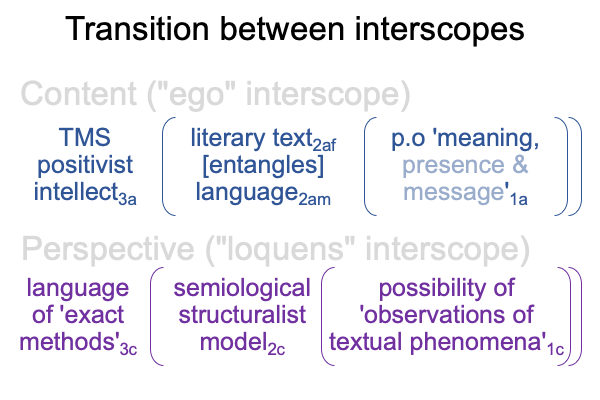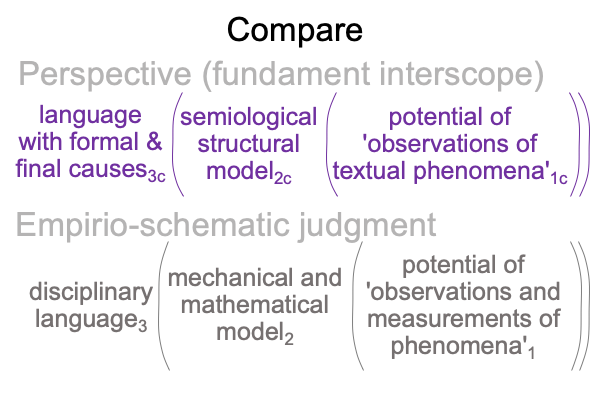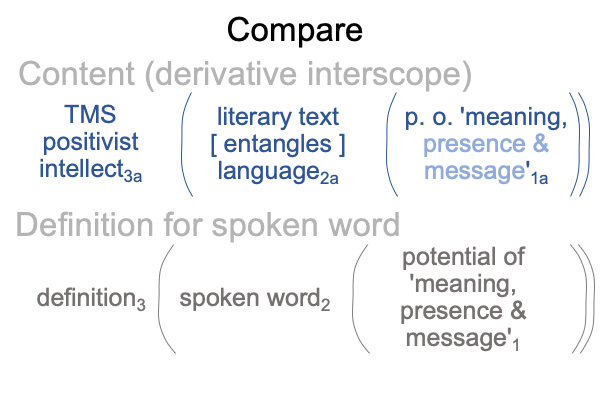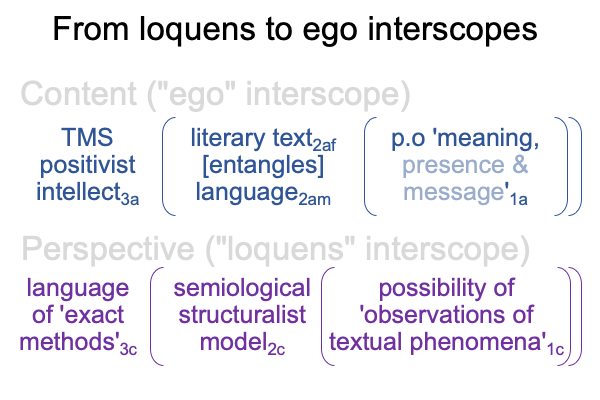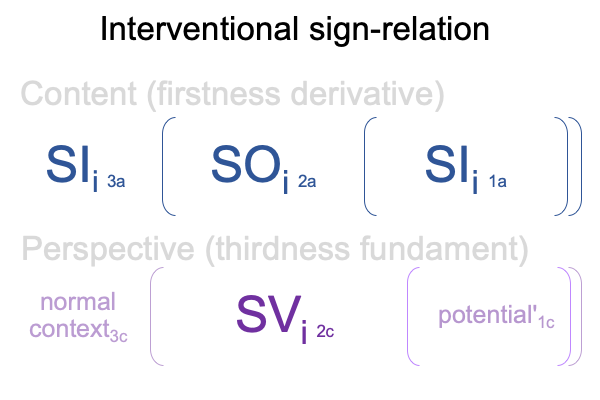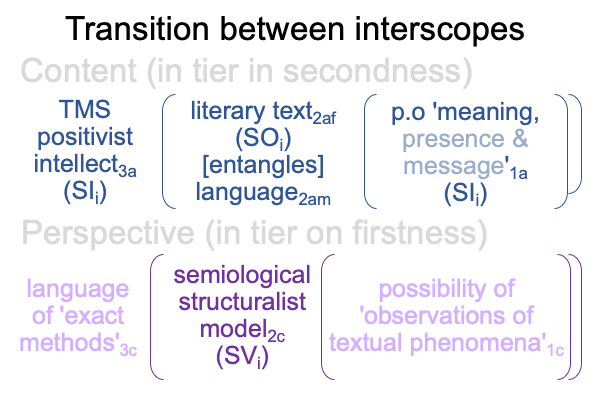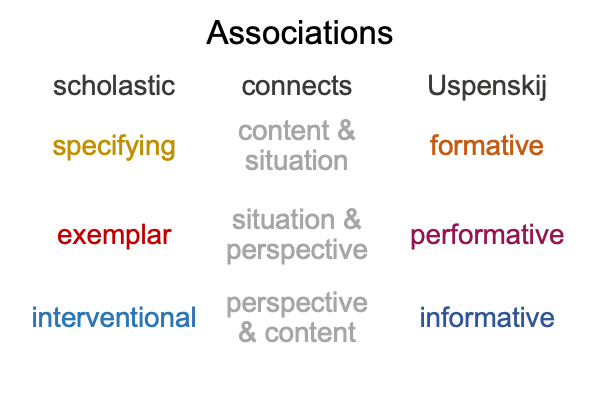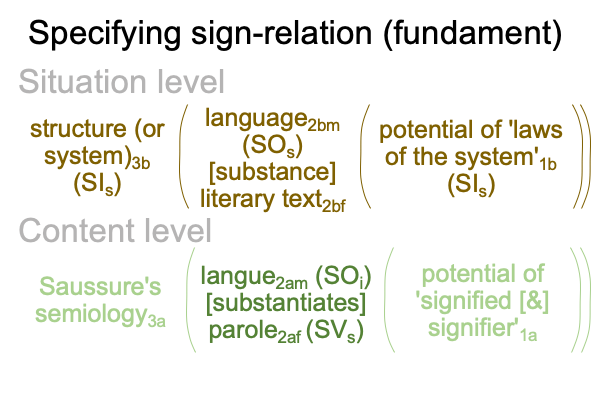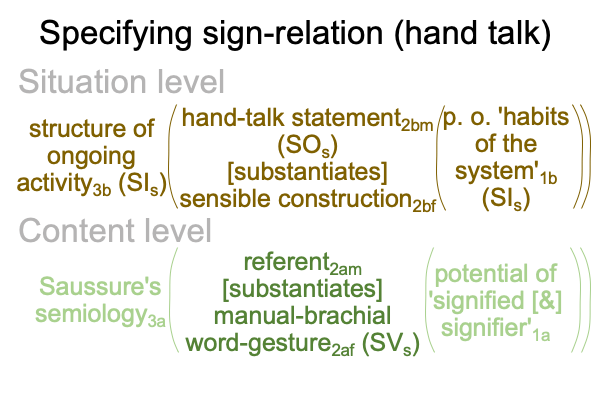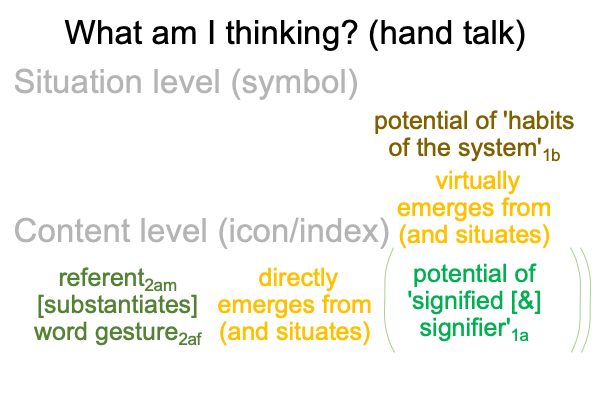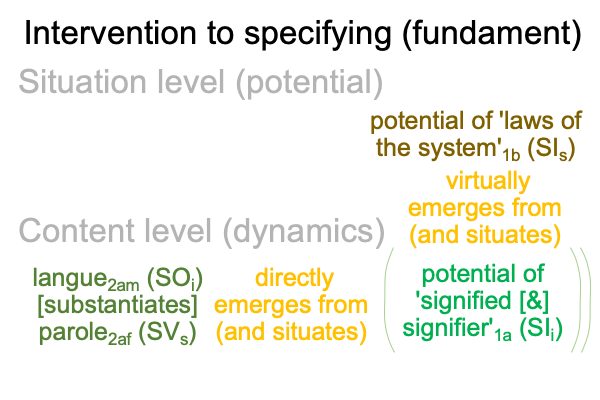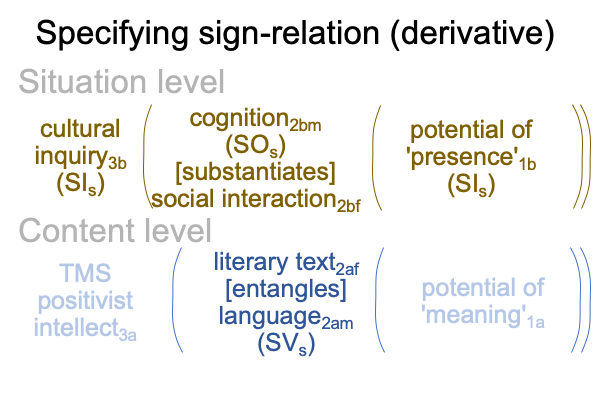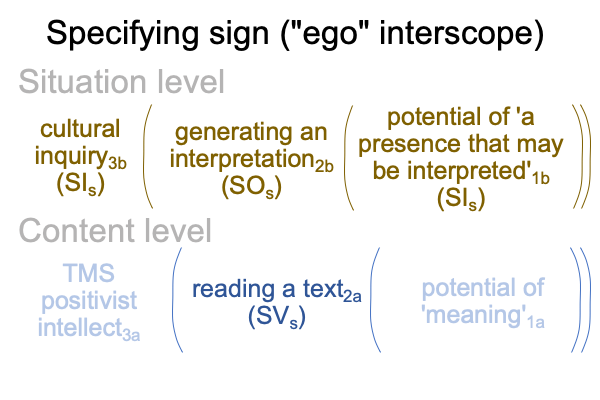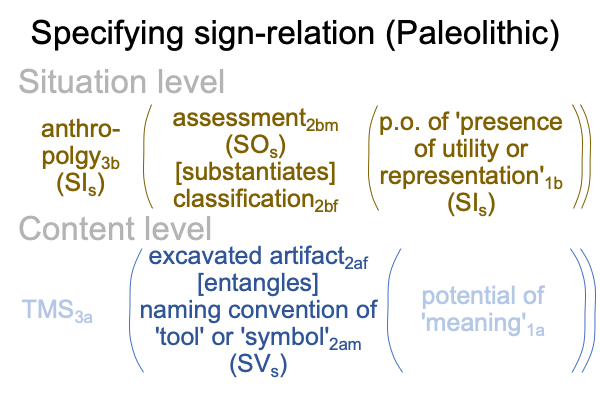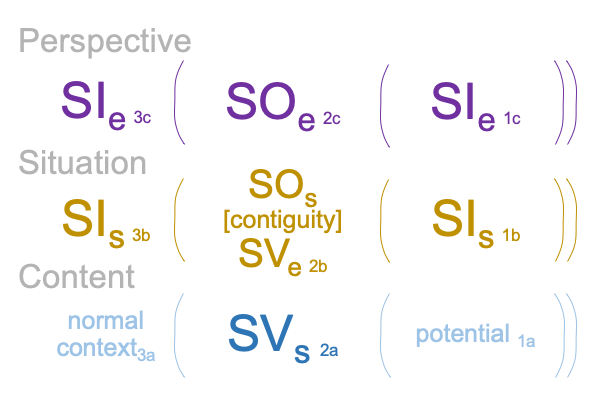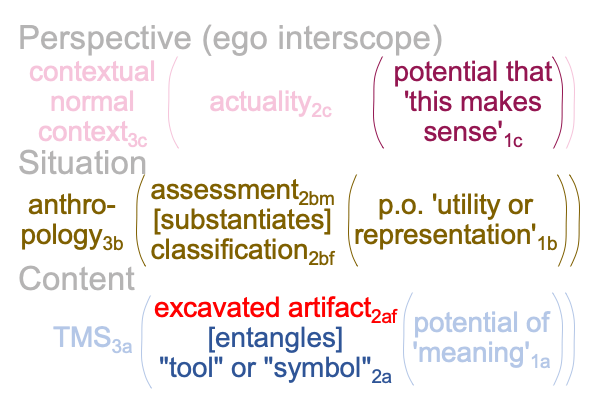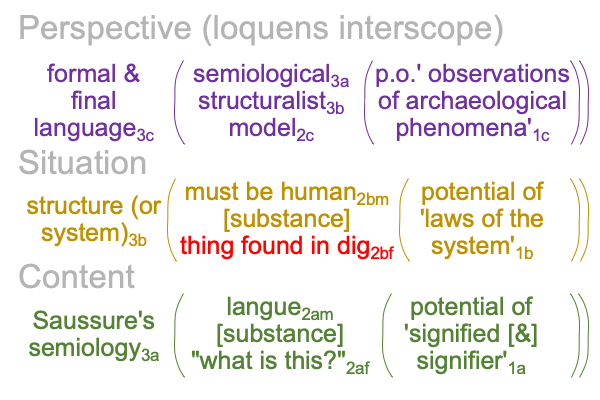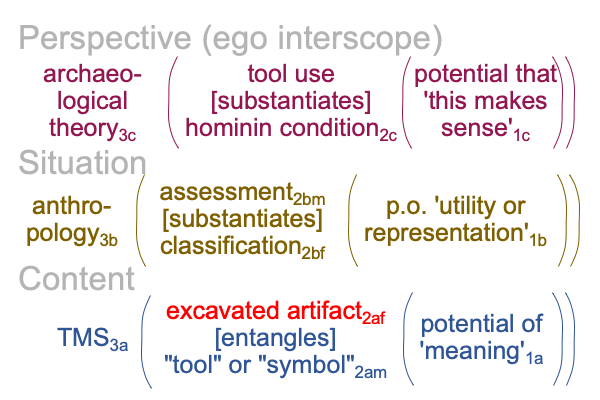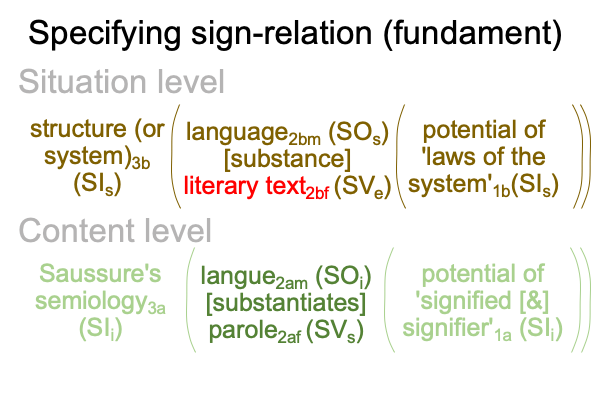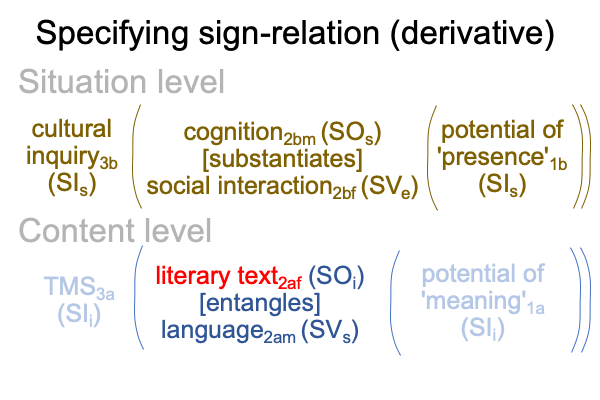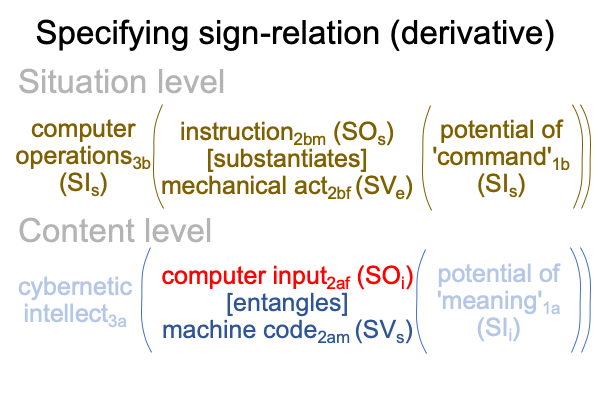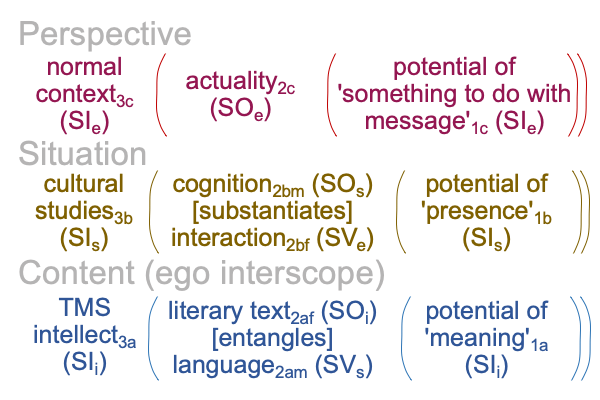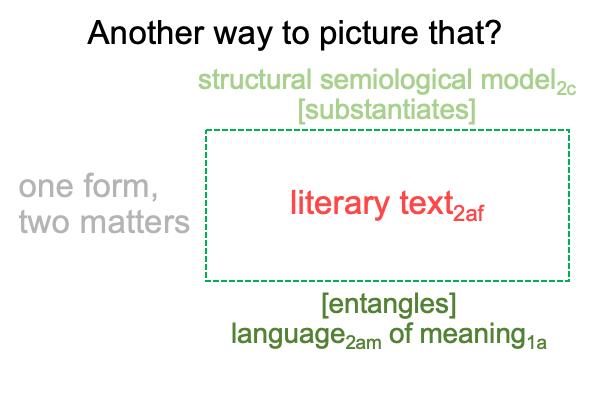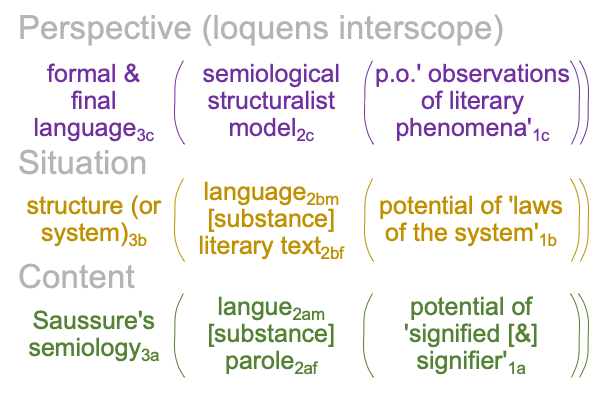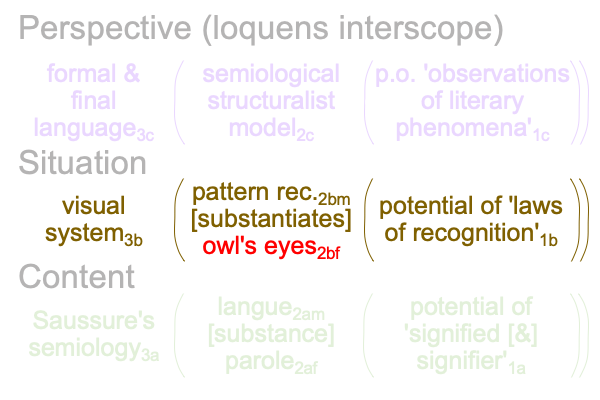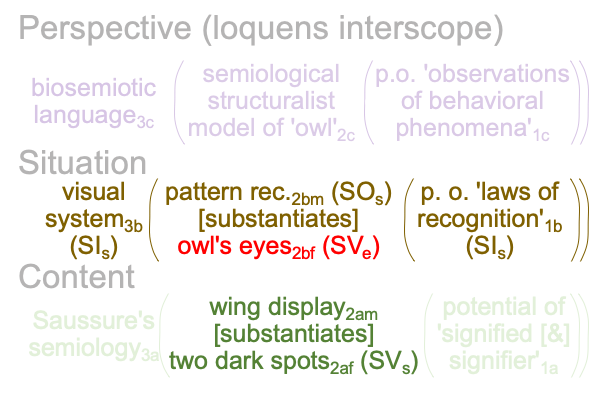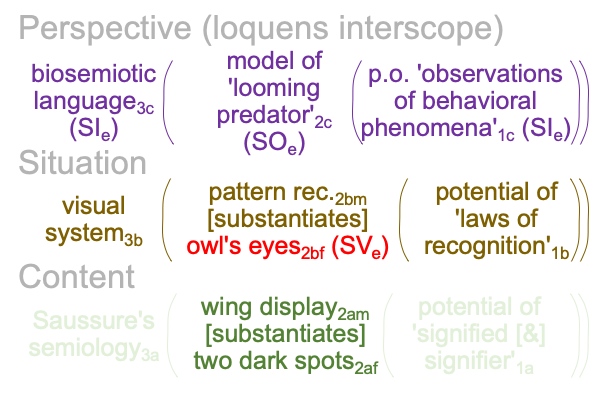Looking at Ekaterina Velmezova and Kalevi Kull’s Article (2017) “Boris Uspenskij…” (Part 8 of 19)
0482 Before proceeding to the second interview in this article, an interlude is in order.
Undoubtedly readers, unfamiliar with the philosophy of Charles Peirce, can scarcely imagine that signs are triadic relations that couple category-based nested forms, which are also triadic relations.
To date, I suppose that few scholars rely on Peirce’s philosophy as a tool.
To most, Peirce’s ideas and nomenclature are subjects for inquiry and refinement.
0483 In contrast, the TMS school clearly uses Saussure’s semiology as a tool for inquiry. The same applies to structuralism. Structuralism alters the discipline of linguistics, once everyone realizes that, if Saussure’s definition of the spoken word is valid, and if spoken words are placeholders in a system of vocal differences (parole) that is arbitrarily related to a system of mental differences (langue), then linguistics has shifted from the humanities into the sciences.
0484 I suspect that the TMS school may be more likely to use diagrams based on Peirce’s categories as tools, once it becomes apparent that these diagrams expound the school’s historical consciousness of development in time, as well as its cosmological consciousness of a foundational invention that well… promises to deliver what natural and social science cannot deliver.
That is, meaning1a.
0485 What is the question at hand?
I don’t know, but everyone knows that scientific inquiry cannot produce meaning.
But here, it does.
How confounding.
Is that the foundational invention?
0486 In this interlude (G-J), I will re-present the fundament (the semiological3a structuralist3b or the “loquens”) interscope (G), wrap up the remaining virtual nested form and emergent (H), portray the transition from fundament to derivative interscopes (I), then present two comparisons that shed light on the shimmering brilliance of the TMS invention (J).
0487 Two works by Razie Mah may assist in the appreciation of the following interscope. A Primer on the Category-Based Nested Form and A Primer on Sensible and Social Construction. These are available at smashwords and other-book vendors.
Here is a diagram of the fundament interscope (G).
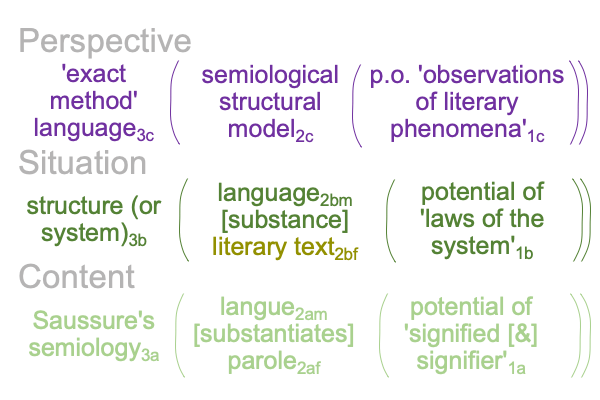
0488 The invention of this interscope opens the door for the Tartu-Moscow School to flourish within a political regime that prides itself on its own scientific foundations. The perspective-level nested form coheres to the shape of the empirio-schematic judgment.
Also, the virtual nested forms in the categories of thirdness and firstness, already discussed, do not give any impression of subjectivity.
0489 These are the features that the interview on August 25, 2011 discuss. The reason? One cannot directly observe normal contexts3 and potentials1. Nonetheless, one can discuss them. That is one of the advantages of the ability of speech-alone talk to attach a label to anything.
0490 The virtual nested form in secondness portrays the workings of this tool of the intellect.
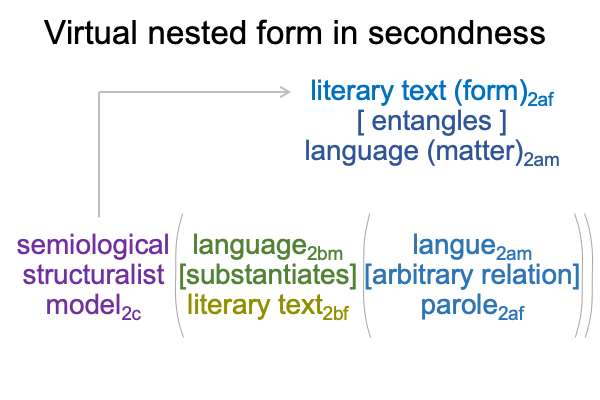
0491 Actuality starts with langue2am as matter and parole2af as form. Saussure’s thing2a stands as a hylomorphe within the schema of Peirce’s secondness. A convenient label for Saussure’s thing2a is “language”. Language is may further be labeled as “subject” and described as “subjective”.
Next, language2bm as matter virtually situates the entire content-level actuality2a (in terms of systems of differences) and directly substantiates a literary text2bf (in the broadest sense of the term) as form. While the substances within each actuality within the content level may be investigated subjectively, consideration of word use2bm within a system3baccording to the laws of that system1b must be objective.
Objective considerations support intersubjective proposals, if a language with exact methods3c is available. The intersubjective result is a semiological structuralist model2c based on observations of phenomena1c in the literary text2bf.
0492 Does the intersubjective ever become suprasubjective?
The semiological model2c transports the literary text from a form2bf that is substantiated by language as matter2bm to a form2af that entangles the character of how we (humans) define the spoken word2am, that is, language2am as matter itself. Spoken language2b is two arbitrarily related systems of differences in the fundament (or “loquens”) interscope. Spoken language2a manifests the potentials of meaning1a, presence1b and message1c in the derivative (or “ego”) interscope.
Doesn’t that seem miraculous (H)?
0493 By appearance, the arrow mimics the proclivity of triumphalist natural scientists to replace the noumenon with a successful model, in order that the model (substituting for the noumenon) can be objectified by its phenomena.
Okay, maybe it seems triumphalist (H, again).
0494 On the situation level of the loquens interscope, the literary text2bf is the noumenon, the thing itself. But how can that be, if it2bf is substantiated by the matter of language2bm, where language2bm is technically defined by Ferdinand de Saussure?
Well, before answering that question, I hurry to the next statement.
On the content level of the ego interscope, the literary text2af is couched in a semiostructuralist model2c that presents itself as the thing itself2af, in order to entangle a new set of phenomena1. These phenomena1 are recognized in gestalt fashion by humans during the game of pantomime. These phenomena1 are meaning1a, presence1b and message1c.
0495 Plus, if Kant’s slogan holds, these phenomena cannot objectify their noumenon.
And, if triumphalism holds, these phenomena can objectify the model that substitutes for the noumenon.

